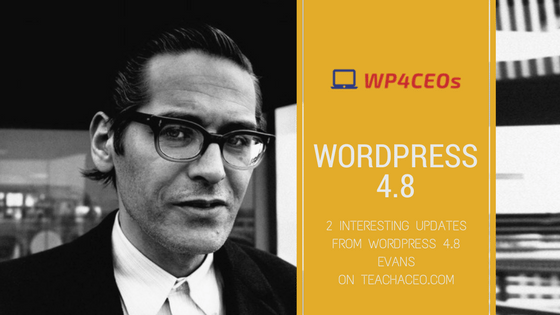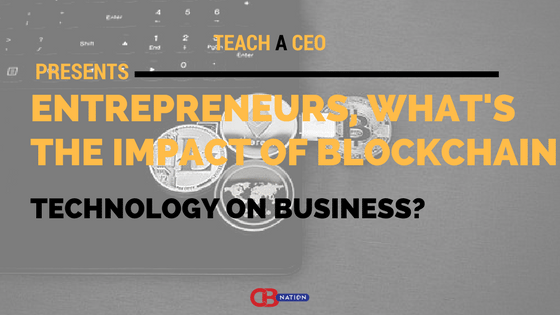Blockchain technology is a revolution on its own. While many businesses are still in a dilemma on whether to incorporate it into their operations or not, others businesses are making great strides by making it part of their system. Besides, it's impacts on businesses may be a force to reckon with.
We asked entrepreneurs and business owners on the impact of blockchain technology and here are their responses.
#1- Streamlining business processes

Blockchain technology and cryptocurrency will have a significant impact on business. Specifically, implementing blockchain-based solutions will allow businesses to streamline many business processes, particularly in the areas of supply chain management, payments processing, and records/data management. Blockchain technology will also result in businesses being less vulnerable to security breaches and ransomware attacks. Cryptocurrencies, on the other hand, have the potential to widen businesses' market pool significantly. In the US alone, there are more than 40 million Americans with no access to basic banking services. Globally, that number swells to more than 2 billion. Mainstream cryptocurrency adoption would change that and allow the unbanked access to the products and services that the rest of us take for granted.
Thanks to Cynthia Turcotte, Bitcoinist!
[divider]
#2- Disruption of various sectors

Blockchain is disruptive, game-changing, and whatever other cliché buzz word you can expect to see on a Shark Tank pitch, to everybody. We're likely to see blockchain technology disrupt social networks, transportation, healthcare and financial services. There are few sectors it won't impact.
Thanks to Paul Burke, RentHoop!
[divider]
#3- Two ways

In terms of marketing, blockchain is a technology that is being used to fight online advertising fraud and the Google-Facebook duopoly. First, as I detail in my column for The Drum on the topic, blockchain might make ad exchanges and ad buying more fluid and transparent. While it might sound unrealistic, advocates of the technology see it as a fully transparent and fraud-protected system that advertisers can leverage to better understand where customers are coming from. Second, blockchain, in theory, removes the middleman from transactions. One blockchain network allows companies to sell unused marketing leads among themselves — thereby removing ad networks such as Google and Facebook from the process entirely.
Thanks to Samuel Scott
[divider]
#4- Transparency

Digital advertising is a $224b industry, but there are too many intermediaries that sit in between the Brand and the Website that delivers the campaign. It is also filled with domain fraud, bot traffic, lack of transparency and lengthy payment models. Marc Pritchards, who is in charge of P&G’s marketing budget, has referenced the ad supply chain as “murky at best and fraudulent at worst.” Blockchain inherently brings transparency to any market so it is ideal for the digital advertising industry. Ternio utility token provides a verifiable and decentralized asset that empowers advertisers to verify spend through the supply chain and gives the supply chain the vehicle to be paid on delivery. Advertisers get what they pay for and publishers don’t have to wait months to collect.
Thanks to Ian Kane, TERN⋮O!
[divider]
#5- Evolution of machine-to-machine commerce

Tokens represent a new business model for services and software on the internet. By providing machines with access to a store of value, it is possible to provide whole new communities of service, enabling multiple, decentralized parties to participate in delivering a new experience and reducing the need to rely on only a single supplier or supply chain. This new model will enable the evolution of machine-to-machine commerce where an advertising model no longer applies. Tokens are the first step to unlock these markets globally.
Thanks to Steven Sprague, Rivetz!
[divider]
#6- Accuracy of information

Companies are investing in prototypes of various blockchain technologies with the notion that this will solve issues around security and data privacy, especially as data breaches are more prevalent and privacy regulations such as GDPR are on the rise. Although Blockchain promises to be a trusted and secure environment, there have been numerous examples of cases where anonymized data is still used to identify individuals. Because of the Blockchain’s distributed nature where every user has a copy of the database, privacy and protection take on a new dimension. You may be anonymous as a user, but the collection of all of your transactions becomes a sort of *data fingerprint* that is way more accurate in identifying than traditional PII classified attributes. If companies are preparing production environments for Blockchain, they will also need to consider key storage policies, usage rights and policies, permission grants, audit frequencies, data sanitization, third-party data management, proof of reserves, and so on. All of this is addressed through data governance. Data governance ensures that the data is managed securely and effectively, but also enables business users to easily find, understand and trust the data. It's a framework for setting data-usage policies and implementing controls designed to ensure that information remains accurate, consistent and accessible in a consistent and timely manner so the organization can capitalize on the many opportunities made available through the digital world we live in of surmountable big data while also ensuring GDPR compliancy.
Thanks to Stan Christiaens, Collibra!
[divider]
#7- Internet transformation
There is a lot of excitement around Bitcoin, its rapidly growing alternatives, and blockchain technology. It's fascinating. Blockchain more broadly appears to have the potential to be as transformative as the internet. But it's important to remember at this stage that this is a speculation rather than an investment. This phenomenon is as old as the tulip bulb bubble. Tulip mania started in approximately 1634 where $100 worth of tulip bulbs turned into $2,000 in a single month. Some smart people are saying that Bitcoin is a fraud and others say it's the new definition of money. Time will tell, and holders of Bitcoin will either make a lot.or lose a lot. What I know for certain is that no one knows for certain. Blockchain has been called internet 3.0. Just like 1.0 and 2.0-even if many of the fundamental predictions prove correct-this will be a volatile place to both make and lose a lot of money.
Thanks to Anthony Glomski, Liquidity & You!
[divider]
#8- Market appeal

We need to monitor the technology and see which blockchain applications are going to capture the mass market. Blockchain is the underlying technology, and how people use it will be the applications. Currently, there are not many blockchain applications, however, an example of one that currently exists is cryptocurrency. These are still the very early days of blockchain technology. Keep in mind that although blockchain technology is at the heart of most cryptocurrencies, not all cryptocurrencies will be built on it. Blockchain technology at its core is an immutable public ledger and cryptocurrency is but one of its applications. Therefore, they are related but they are not one in the same as most people think. Both blockchain technology and cryptocurrencies will have huge impacts on business in the far distant future, so business owners should keep tabs on both by looking for the applications built on these technologies that are gaining mass market appeal. An example of these applications is if your merchant processor starts allowing your customers to pay you in cryptocurrencies.. If, and when, that happens, business owners will have to spend the time to enhance their learnings in this area.
Thanks to Tony Kim, HEXONET Services Inc.!
[divider]
#9- Easy payments

As Cryptocurrencies are becoming more mainstream, you will find that when a store or business begins to accept Bitcoin or other Cryptocurrencies, they are spotlighted for accepting such digital cash. For example, when the South African pie shop, Trophy Pies, began accepting PIVX, articles posted online helped bring a lot of attention and, thus, new customers to the small family business. Cryptocurrencies make it easier for entrepreneurs to accept payments globally without the need of a 3rd party, reducing how much information is needed and the waiting periods for verifications. With cryptocurrency, it's simpler, faster, and more convenient!
Thanks to Jeffrey Timms, PIVX!
[divider]
#10- Data aggregation and raising capital

Entrepreneurs need to understand that blockchain is much more than bitcoin. Decentralization is shaking up how data is aggregated and how capital is raised (ICOs). One fun way we've seen people get involved risk-free is via airdrops. Alternatively, businesses can get involved by paying employees in crypto or by creating an ICO/ITO; if that's too much work, Corl can help businesses do both.
Thanks to Sam Kawtharani Manuge, Corl!
[divider]
#11- Secure financial transactions

Blockchain and Cryptocurrency will change the concept of global economics and possibly the financial polarisations of specific financial organizations. These will allow anyone to commence financial transactions in more secure manner bypassing any intermediate organisation or identity. Everyone will have the same access to the same central database and use the same data with own discretion. No one have to acquire the permission to access the resources if he or she has a connected mobile device anywhere in the world. Financial transactions will be completed with lightning speed with one final push between any two points over the world. Blockchain and Cryptocurrency are both in the newborn stage but already the twins have startled the global economy and established the impression of changing the economic rules in the near future. Every new invention comes with a lot of possibilities and promises along with some flaws which surface later. In the same way, Blockchain and Cryptocurrency will unlock amazing possibilities for businesses until the flaws of them really ruin the prospects.
Thanks to Andrei Vasilescu, DontPayFull!
[divider]
#12- Boom in blockchain auditing
Independent administrators will likely hire specialized blockchain auditors to provide assurance to their members that blockchain applications are operating according to agreed-upon terms and that all data included are accurate and secure. In addition to financial skills, these auditors will need to understand blockchain technology and audit security processes as well as data integrity.
Thanks to Jeff Stollman, Rocky Mountain Technical Marketing, Inc!
[divider]







































![10 Reputation Management Tips [INFOGRAPHIC]](https://teach.ceoblognation.com/wp-content/uploads/sites/8/2018/03/Reputation-management.jpg)






 |
|